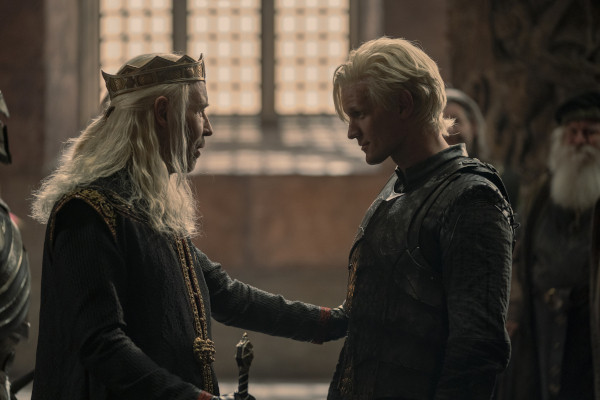House of the Dragon’s Moralizing discourse
Critics ought to remember they aren’t smarter than audiences
Some TV critics seem to think audiences aren’t smart enough to recognize that the authoritarianism and violence on display in HBO’s House of the Dragon are meant to be bad. (Supplied photo)
Those who follow the major entertainment news outlets and blogs have likely seen their social media feeds overrun with every outlet weighing in on the show’s merits and political implications as if it carried all the weight of a new constitution.
I understand that this is part of the deal of online pop-culture commentary. Articles, tweets and podcasts weigh in on the big films and shows of the day, and we read and listen to them because we enjoy watching this stuff, too.
Now that the monoculture of three TV networks has been overtaken by the fractured streaming media landscape, these thinkpieces have replaced the “water-cooler chat” that existed when everyone was mostly watching the same thing.
But there’s a moralizing tenor to the commentary on House of the Dragon that highlights how little respect many critics have for the intelligence of the audiences who watch it.
In a Globe and Mail article titled “Is House of the Dragon fascist fantasy escapism?” John Doyle writes of the character Daemon Targaryen (Matt Smith), a prince whose superficial charm fails to conceal his brutal authoritarianism. In the show, Daemon uses his position as the leader of the show’s de facto police force to wage violent purges of what he deems a criminal element. He uses his sense of entitlement to absolute power as a cudgel against his enemies.
The metaphor for fascism, both historical and contemporary, is clear to anyone looking for it. But to Doyle, this isn’t enough. “The thing about House of the Dragon,” he writes, “is that it doesn’t take a moral stance on the actions or conduct of Daemon. It doesn’t seem to take a moral stance on anything ... so far Matt Smith’s smirking delight in what his character does is dangerously alluring to the impressionable.”
In National Review, frequent contrarian Armond White also claimed the series “revives fascist art,” a bold move for a critic and publication that frequently goes to bat for actual, real-life fascism.
Another frequent and often contradictory charge is the show’s allegorical relationship to medieval Europe. Many rightly criticized Game of Thrones for its lack of BIPOC actors, pointing out that a fantasy setting isn’t beholden to historical demographics (and that most medieval societies were intensely multicultural).
But IndieWire and The New York Times have criticized the show’s violence (including a graphic scene of a fatal C-section performed against the patient’s will) as historically inaccurate. Never mind what the show might be trying to say about physical autonomy and reproductive rights in our own era.
What really chafes about these criticisms is the notion that viewers aren’t intelligent enough to make these moral inferences themselves. The showrunners clearly trust audiences to view the show through our current lens, to hold up a mirror to our own world.
This is what good art does. It doesn’t tell the viewer what to think, leaving them smug and satisfied about their own moral superiority. It asks provocative questions, forcing us to examine uncomfortable truths about our own world and our own complicity in it.
Thomas Pashko is the managing editor of The Uniter. He got his start doing arts criticism, so he’s got opinions about it.
Published in Volume 77, Number 03 of The Uniter (September 22, 2022)






